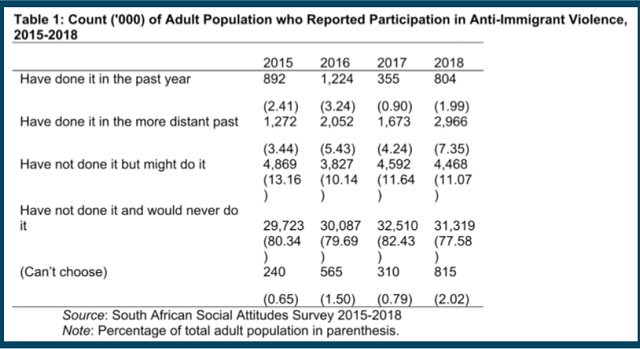
Conclusion
One of the most troubling findings to have emerged concerned possible participation in anti-immigrant aggression among those who had not taken part before. More than one in ten adults living in South Africa reported in the 2018 survey that they had not taken part in violent action against foreign nationals – but would be prepared to do so.
This finding is quite disturbing given that there may be under-reporting of the propensity for violent action. Anti-immigrant stereotypes were shown to be a robust driver of this kind of behavioural intention. This suggests that anti-immigrant attitudes could have a mobilising effect, spurring individuals towards acts of violent xenophobia.
The results of this study show that millions of ordinary South Africans are prepared to engage in anti-immigrant behaviour. So it is vital that the resources dedicated to combating xenophobia be equal to the size of the problem.
The South African government has a national action plan to combat racism, racial discrimination, xenophobia and related intolerance. The progressive measures put forward in the plan include immigrant integration, better law enforcement, civic education and increased immigrant access to constitutionally entitled rights.
Recent research suggests that many of these measures have a degree of public support. The plan was approved in March this year. If it’s to work, it requires adequate resources and support from all sectors of South African society.
Instead of focusing on short-term solutions, civil society, foreign governments and the general public must work with the state to progressively implement this plan.
****
Steven Gordon is Senior research specialist, Human Sciences Research Council
 The Independent Uganda: You get the Truth we Pay the Price
The Independent Uganda: You get the Truth we Pay the Price



